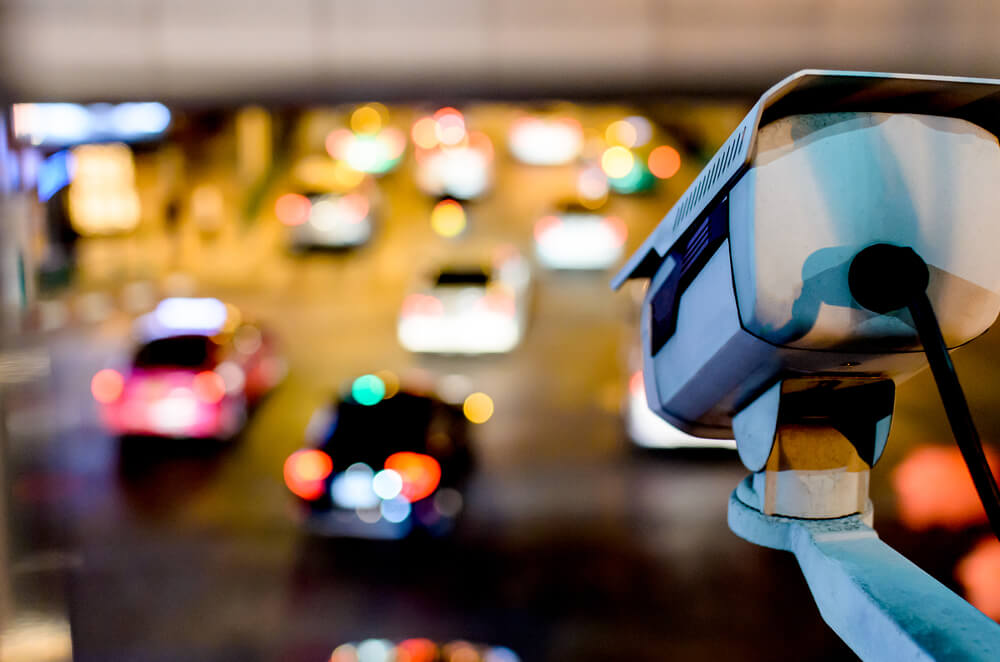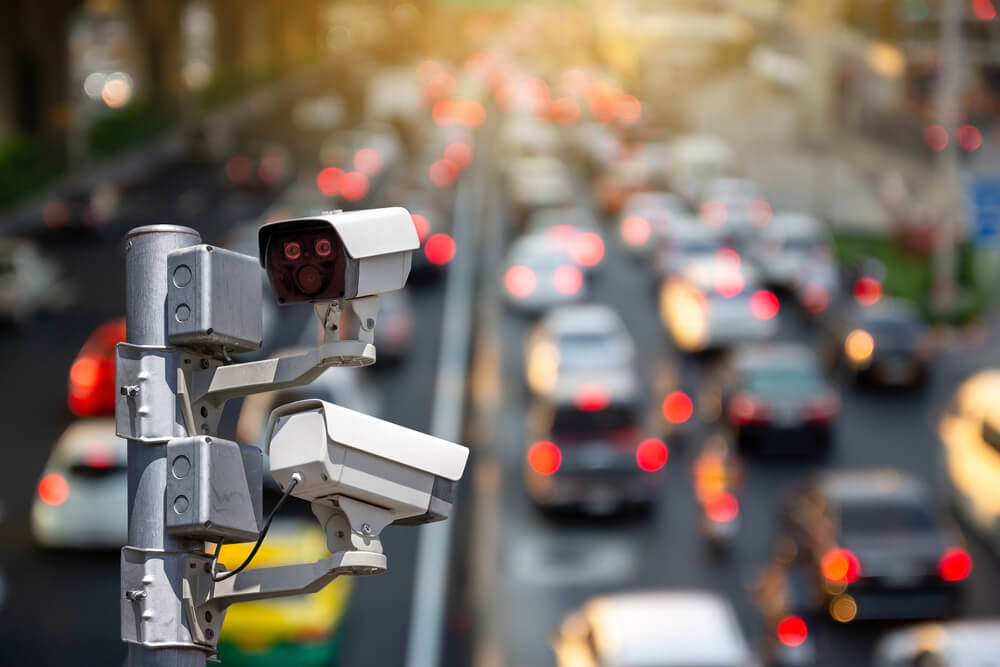Worried about traffic cameras while driving a rental car in Thailand? Traffic laws are strict and cameras record many road violations. This guide explains the key rules to keep you safe and avoid fines.
Read on for easy tips every driver should know when driving a rental car in Thailand.
How Traffic Cameras Operate in Thailand
Traffic cameras in Thailand come in various forms, such as CCTV and speed cameras. They are strategically placed at key locations to monitor traffic flow and enforce road safety regulations.
These cameras play a crucial role in promoting adherence to driving laws and ensuring accountability for traffic violations.
Types of traffic cameras used
CCTV cameras record video at busy intersections and major roads. Police use speed cameras to catch drivers going over the speed limit. These devices work on highways, city streets, and near schools.
Some cameras snap a photo of your car’s number plate if you run a red light or break other driving laws in Thailand.
Police checkpoints sometimes have mobile surveillance cameras to spot unsafe driving or test for alcohol limits. “More than 14,000 traffic monitoring systems are active across Thai roads,” said the Road Safety Directing Center in 2023.
Next, see where these traffic enforcement tools are most common in Thailand.
Common locations for traffic cameras
Traffic cameras often sit at busy crossroads in Thai cities. These spots help police watch for red light and speeding offences. Highways between big cities like Bangkok, Pattaya, and Chiang Mai use speed cameras to catch fast drivers.
You will see many monitoring systems near schools and pedestrian zones for road safety.
High-traffic tourist areas such as Phuket and Samui also have more surveillance to lower accidents from rental cars. Police checkpoints sometimes work with CCTV systems near toll booths or major junctions to enforce local traffic laws.
Knowing where these cameras are can help you follow the speed limits and avoid fines while driving a rental car in Thailand.
Understanding how these devices operate helps travellers keep up with Thai driving laws and avoid unwanted penalties.
Traffic Regulations and Fines for Rental Drivers
Rental drivers in Thailand need to be aware of the strict traffic regulations and fines enforced on the roads. Understanding speed limits and how fines are issued and paid is crucial for a hassle-free driving experience in Thailand.
Speed limits and enforcement
Speed limits in Thailand are clear. Inside cities, the limit is usually 60 km/h. On highways and expressways, most allow up to 120 km/h. Some roads post lower speed limits; always check road signs.
Traffic cameras watch for speeding at busy spots like highways and junctions. CCTV cameras often work with police checkpoints along main routes. Fines for speeding start from 500 THB but can go higher if you drive much faster than allowed or near schools.
Authorities send fine notices to rental agencies, who then pass them to drivers.
Speeding fines in Thailand can reach up to 1,000 THB if you ignore posted limits.
How fines are issued and paid
Traffic cameras in Thailand catch violations such as speeding or running red lights. CCTV cameras record the car’s plate number and time of offence. Police review images and issue fines to the vehicle’s registered owner.
Rental companies often receive these fines first since they own the vehicles tourists drive.
Rental companies usually pay the fine right away to avoid extra charges. They then charge you later, using your deposit or credit card details provided at booking. Fines for traffic violations start from 500 baht but can be higher for serious offences like drunk driving or reckless behaviour on roads monitored by surveillance cameras.
Payment methods include bank transfer, cash at police stations, or direct debit arranged through rental agencies if you used a credit card during vehicle hire in Thailand.

Tips for Avoiding Traffic Violations in Thailand
Understanding road signs and local rules is crucial for driving safely in Thailand. Using navigation tools to stay compliant with traffic regulations can greatly help rental drivers navigate unfamiliar roads efficiently.
Understanding road signs and local rules
It’s important to note that road signs and local rules in Thailand may vary from those in your home country. Familiarise yourself with the common road signs and their meanings before driving a rental car in Thailand.
Pay attention to directional signs, speed limits, and warnings about potential hazards on the roads. Furthermore, familiarise yourself with local traffic regulations such as right of way, parking restrictions, and pedestrian crossings to ensure safe and compliant driving during your time in Thailand.
It is advisable to use reliable navigation tools that provide real-time updates on road conditions and local traffic laws. This can help you stay informed about any specific rules or changes while travelling through different areas in Thailand.
Always be mindful of street markings, signals at intersections, and any extra instructions provided by authorities to maintain safe driving practices according to Thai regulations.
Using navigation tools to stay compliant
When driving a rental in Thailand, employing navigation tools can assist you in adhering to local traffic regulations. Utilise GPS and map apps to plan your route before commencing your journey.
Pay attention to speed limits, road signs, and traffic updates provided by the navigation tools to ensure secure and legally compliant driving.
Moreover, contemplate utilising real-time traffic information available through these navigation tools to evade congested routes and minimise the risk of unexpected violations. These tools can also guide you away from areas where police checkpoints or surveillance cameras are present, aiding you in conforming to Thai traffic laws during your rental period.
Traffic Cameras When Driving a Rental Car in Thailand
When driving a rental car in Thailand, being aware of traffic cameras is crucial. Understanding how these cameras operate and where they are located can help you avoid traffic violations and fines.
It’s essential to adhere to local traffic regulations, including speed limits and road signs, while also using navigation tools for compliance. By staying informed and taking necessary precautions, you can ensure a safe and enjoyable driving experience during your time in Thailand.
When you need a rental car in Thailand, SPS Car Hire Pattaya is a great company you can trust. Please click on the button below for more details. You can also click here to see our other services.


